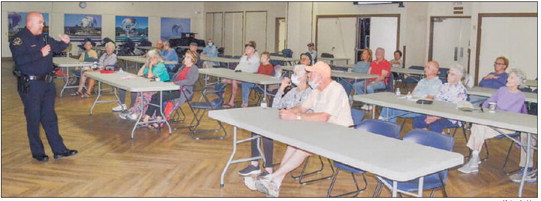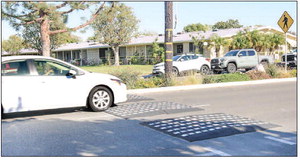Scam Watch
A Leisure World resident received a call allegedly from Publishers Clearing House last week, telling her that she have won $2.5 million and a C Class Mercedes, both of which would be delivered by UPS that day.
All she had to do was provide her identification information for verification and purchase a $100 cash card from Walmart, which would be donated to charity because “it would be appropriate after winning so much money.”
For 20 minutes she asked how she could win a contest she didn’t enter and refused to give personal information. The caller told her to call the company and gave a (912) number, which is a private phone number in Tyne Island, Georgia, and then hung up.
According to the Fraud Protection section of the Publishers Clearing House (PCH) website, you never have to pay to claim a prize. If someone contacts you claiming to be from PCH, and tells you that you’ve won a prize—then asks you to send a payment or money card in order to claim the prize, STOP! You have not heard from the real PCH.
Here are tips to help you spot PCH scams:
• PCH Doesn’t Email or Call Its Big Winners If you receive an email, a telephone call, or a bulk mail letter saying that you’ve won a big prize from PCH, it’s a scam. According to the PCH website: “All PCH prizes of $500 or greater are awarded by either certified or express letter or in person by our famous Prize Patrol at our option.” So if you receive a prize notification by any other method than certified mail or an in-person award, you know you are being scammed.
• You Never Have to Pay to Receive a Legitimate PCH Win Scammers extort money from you in exchange for a promise of a prize that never materializes. The truth is you never have to pay to receive a sweepstakes prize from Publishers Clearing House or any other company.
• No Confidential Information Required You don’t have to give Publishers Clearing House your address, bank account number, driver’s license number, or any other confidential information when you first enter. You may have to fill out an affidavit to verify eligibility if you win, but not when you enter. If the entry form is asking for this kind of personal information, it’s a sign you are on a spoofed website.
• A Check Doesn’t Mean You’ve Won Scammers sometimes make it appear that you’re not “really” paying for your prize by handing over a check and asking you to send back some of the money. After all, they’re providing the funds, right? Wrong. Those checks aren’t legitimate, and you’ll be left holding the bill. Read about check scams for more information. Since its inception, the PCH sweepstakes has had no purchase, fee, cost or payment to enter or win. This message appears repeatedly in all its communications. As the industry leader in legitimate sweepstakes promotions and offers.
For more information on PCH and its fraud prevention program, visit info.pch.com.


